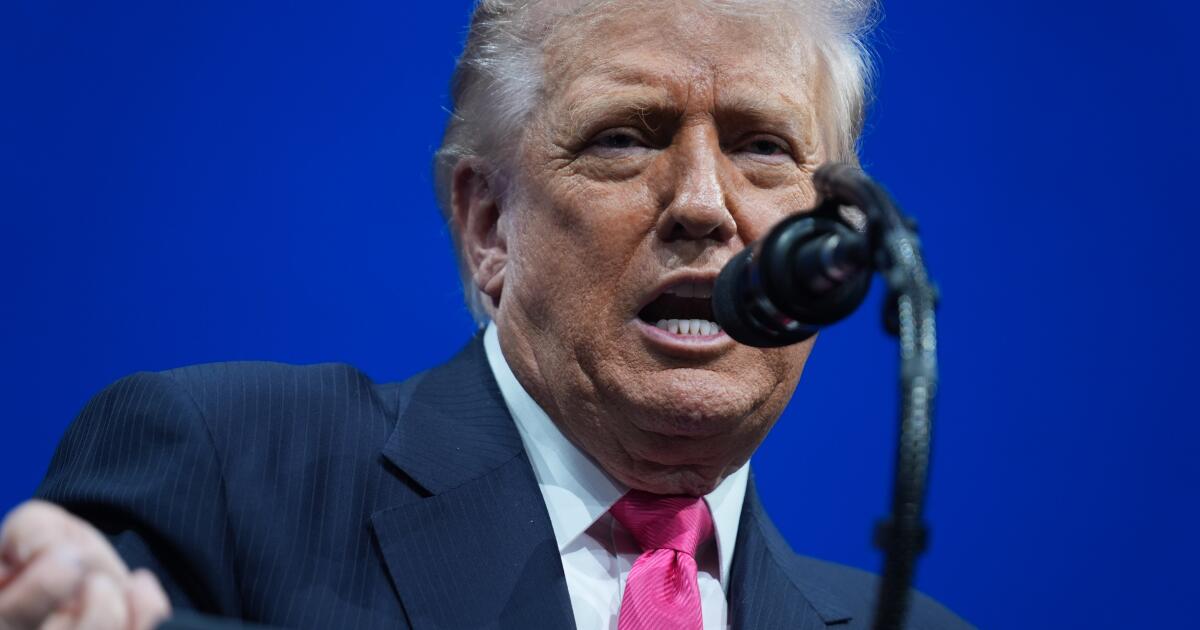WASHINGTON — President Trump on Wednesday night signed legislation requiring the Justice Department to release all documents related to its investigation into sex offender Jeffrey Epstein.
With little fanfare, the president announced the action in a lengthy social media post criticizing Democrats with ties to the late financier, a line of attack he has often used while ignoring his own connection and the involvement of other Republicans in the scandal.
“Perhaps the truth about these Democrats and their connections to Jeffrey Epstein will soon be revealed, but I JUST SIGNED THE EPSTEIN FILES RELEASE ACT!” Trump wrote about this in his post on the social network Truth Social.
Now the spotlight turns to Atty. Gen. Pam Bondi, who is required by law to provide “all unclassified records, documents, communications and investigative materials” to the Department of Justice no later than 30 days after the bill becomes law.
The decision on the bill marks a dramatic shift for Trump, who worked for months to block the release of Epstein's files until Sunday, when he reversed course under pressure from his party and urged Republican lawmakers to support the measure. A few days later, the Senate and House of Representatives voted overwhelmingly for the bill and sent it to Trump's desk.
Although Trump has already signed the bill, his resistance to releasing the files has led to skepticism among some lawmakers on Capitol Hill, who question whether the Justice Department may be trying to withhold information.
“The real test will be, will the Justice Department release the files or will it remain an investigation?” Rep. Marjorie Taylor Greene (R-Ga.) said this at a press conference on Tuesday before The House and Senate passed the bill. Greene was among a small group of GOP defectors who joined with Democrats to push for repeal of the law over Trump's objections.
The legislation prohibits the attorney general from withholding, delaying, or editing the release of “any records, documents, communications, or investigative materials for reasons of embarrassment, reputational harm, or political sensitivity, including for any government official, public figure, or foreign dignitary.”
Special provisions in the bill could allow Trump and Bondi to withhold documents that include identifying information about victims or images of child sexual abuse material.
The law would also allow them to withhold information that would “jeopardize an active federal investigation or ongoing prosecution, so long as such withholding is highly specialized and temporary.”
Last week, Trump ordered the Justice Department to investigate Epstein's ties to major banks and several prominent Democrats, including former President Clinton.
Bondi complied and appointed a top federal prosecutor to conduct the investigation “with urgency and integrity.” In July The Ministry of Justice has determined After an extensive review, it was determined that there was not enough evidence in the Epstein case that “could form the basis for an investigation against unindicted third parties.”
At a news conference Wednesday, Bondi said the department had opened another case against Epstein after “new information” came to light.
Bondi did not specify how the new investigation might affect the release of the files.
Asked whether Epstein's documents would be released within 30 days, as required by law, Bondi said her office “will follow the law.”
“We will continue to follow the law with the utmost transparency while protecting victims,” Bondi said.








